Thread subject: Diptera.info :: Cecidomyiidae Dasineura larvae ?
#1
Hey dipterists,
In front of o Cecidomyiidae orange larva (of course the generic spatula is present)
i'm lost with no key determination of these Diptera larvae
Has someone this kinf od info to share ?
Thank you
#2
Do you know what host it came from, or if it is a fungus feeder?
_The Plant Feeding Gall Midges of North America_ has a key to larvae of the plant-feeding gall midges of North America. The key mostly relies on host association. Otherwise I think the information is scattered among many publications. Gagne's review of Nearctic Cecidomyiidi describes larvae of some genera, but does not have a key to larvae.
#3
@John Carr
I collected a 100 ml sample in a puddle on a roof. Old leaves of
Rubus fructicosus Blackberries ! in the water, Haematococcus, rotifers and larvae of Chironomidae and a lot of ciliates.
I know there are no aquatic larva of Cecidomyiidae, perhaps they were on the surface of the leaves, but they were in the collected sample. Their size is 2 mm length.
They survive long in the water. I will post pictures and a video clip later.
I did prospect in the Gagné... and read that there is no determination key for these larvae yet.
Thank you.
SDS
ps: Could be a
Dasineura
#4
Hey dipterists
merci pour la bienvenue
Here are the best pictures I have extracted from video clip regarding these larvae.
There is an important observation I think.
These larvae are living since a certain time in the water as they are full of algae and rotifers and
Vorticella


pictures of the cephalic part and spatula



lateral view of cephalic part

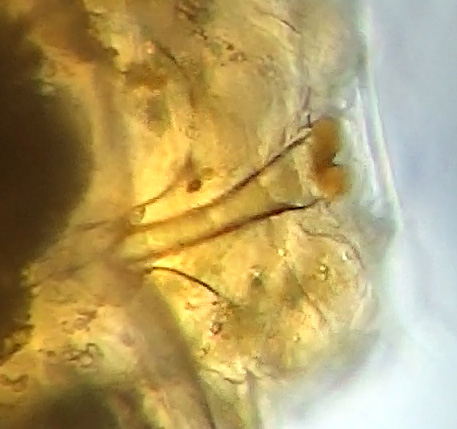
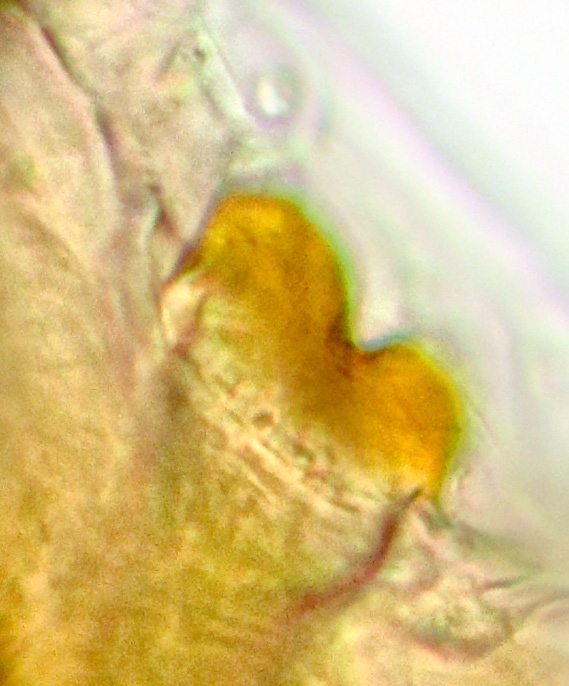

pattern of anal segment


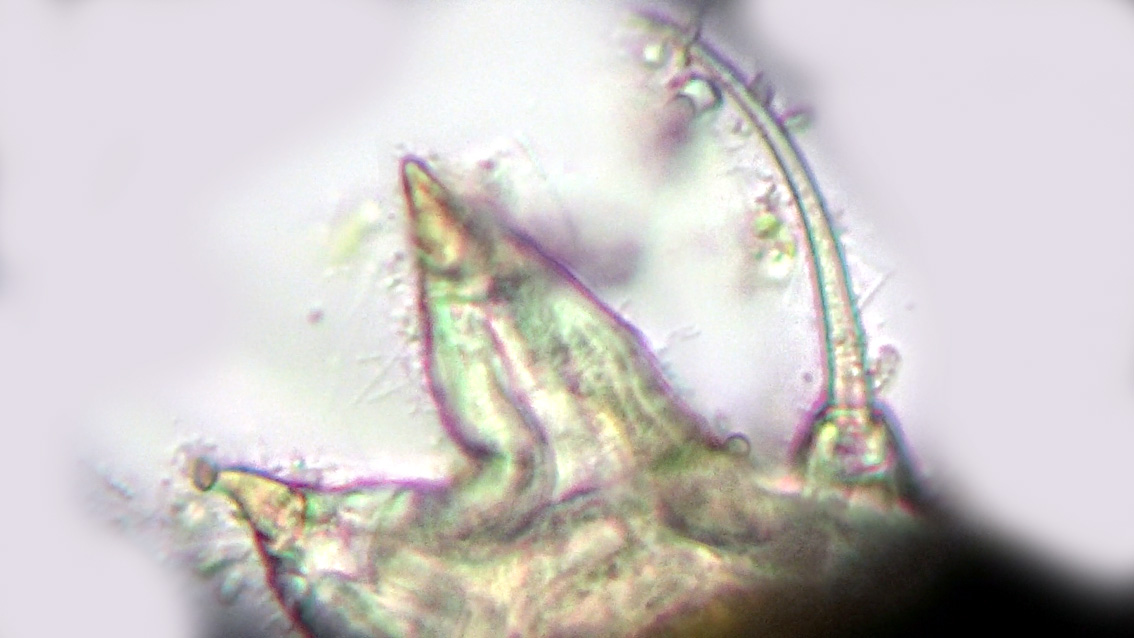
and split-like anus ?
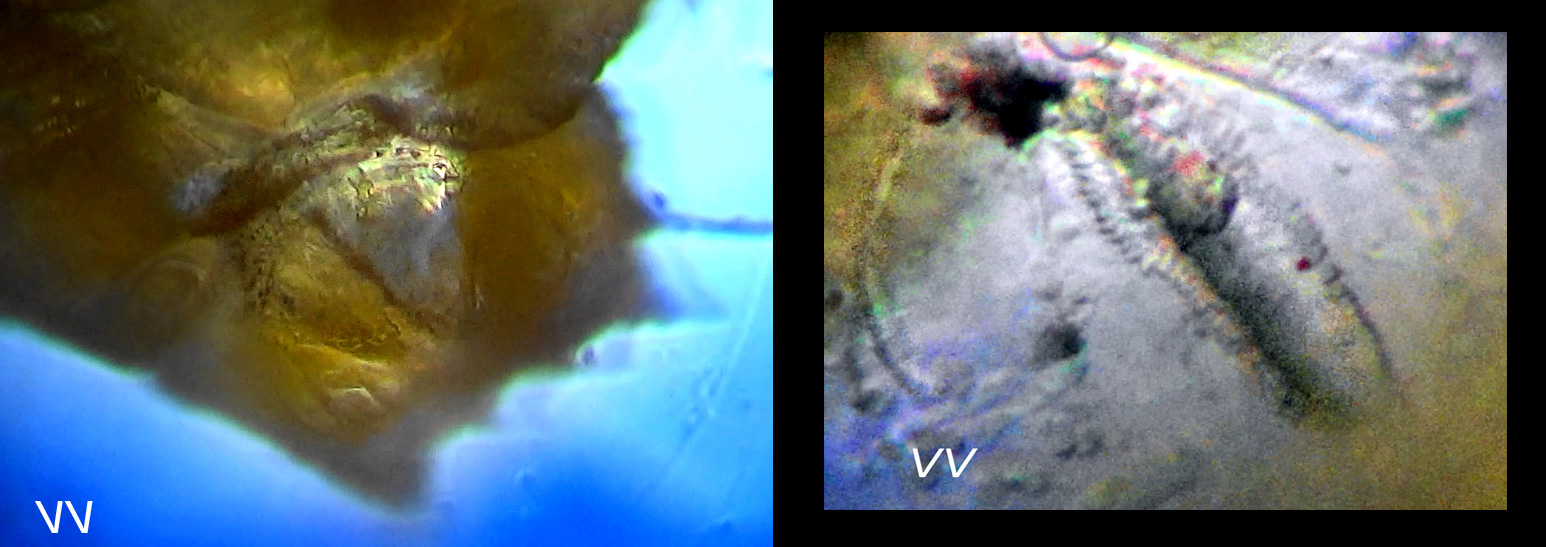


Thanks
SDS
#5
After two days in a water drop on a glass slide: Still alive !!!
And finally
I did find two spiracles... on the thoracic segment level
here they are

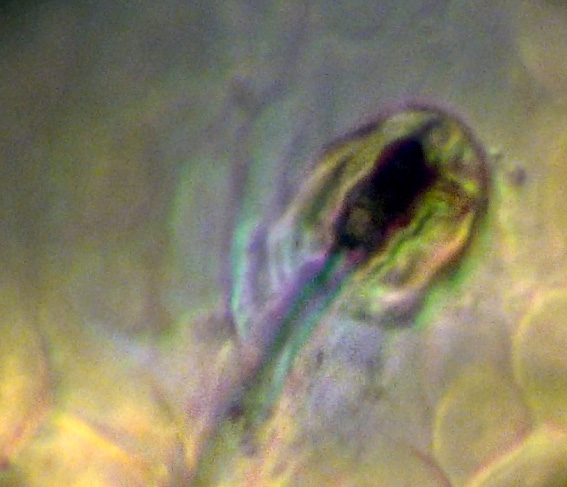
and here is a lateral view

a last view on the cephalic part and antennae

and on the ventral side... alike locomotor belts...
something like spicules or very tiny spines

I hope this will help
Merci beaucoup
SDS
#6
and what about
Dasineura Gannoni ?

Figure 5: Dasineura gannoni. (a–e) female, (f–i) larva. (a) End of ovipositor in lateral view, (

sixth antennal flagellomere, (c) seventh tergite, (d) eighth tergite, (e) antenna, (f) sternal spatula with adjacent papillae, (g) head in dorsal view, (h) integument, (i) terminal segment in dorsal view.
MErci beaucoup
SDS





















 sixth antennal flagellomere, (c) seventh tergite, (d) eighth tergite, (e) antenna, (f) sternal spatula with adjacent papillae, (g) head in dorsal view, (h) integument, (i) terminal segment in dorsal view.
sixth antennal flagellomere, (c) seventh tergite, (d) eighth tergite, (e) antenna, (f) sternal spatula with adjacent papillae, (g) head in dorsal view, (h) integument, (i) terminal segment in dorsal view.